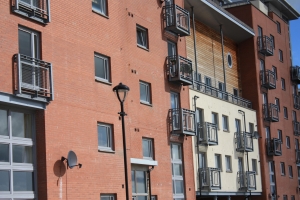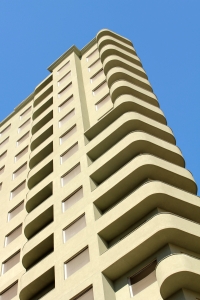 One unique aspect of New Jersey tenancy law is the notion that a residential tenant is a “tenant for life” who cannot be evicted simply by letting the lease run out. In fact, even in cases where the residential lease states that the tenant must vacate on a certain date, such provision is considered void and unenforceable. Residential landlords are then faced with the problem of how to evict an undesirable tenant who is not in violation of the lease.
One unique aspect of New Jersey tenancy law is the notion that a residential tenant is a “tenant for life” who cannot be evicted simply by letting the lease run out. In fact, even in cases where the residential lease states that the tenant must vacate on a certain date, such provision is considered void and unenforceable. Residential landlords are then faced with the problem of how to evict an undesirable tenant who is not in violation of the lease.
One method that has been commonly employed is the use of rent increases. But the law regarding rent increases requires that the landlord can prove that the increase being sought is “not unconscionable.” Therefore, several landlords who wish to rid themselves of a tenant have begun to employ the “personal occupancy” provision of the Anti-Eviction Act. This provision, which allows the owner of a dwelling to evict a tenant upon two months written notice, is considered to be the only one of the 17 causes for eviction under the Act that does not require cause. In other words, in order to evict a tenant for personal occupancy, it is not necessary to demonstrate that the tenant did anything wrong. Landlords should note, however, that this particular cause for eviction is only available in dwellings with not more than 3 apartments. Therefore, an owner of an apartment building would not be able to evict one tenant on the ground that he or she wanted to occupy that unit.
Our office will not accept any matter where we suspect the landlord is attempting to use the “personal occupancy” provision in a fraudulent manner. However, as one may expect, this cause of action is subject to abuses by landlords who have no intention of occupying the home from which they have evicted a tenant. Accordingly, N.J.S.A. 2A:18-61.6 provides substantial penalties for wrongful eviction in cases where the landlord who evicted the tenant fails to occupy the premises for at least 6 months (or fails to execute contract of sale) and permits occupancy by another tenant. Due to the confusing wording of the Statute, many Judges mistakenly disregard the second requirement.
 New Jersey Real Estate Attorney Blog
New Jersey Real Estate Attorney Blog


 In 2000, the International Code Council developed a comprehensive set of property maintenance regulations designed to provide municipal code enforcement officials with guidance on a variety of issues concerning the construction and occupancy of structures. Like its predecessor, the BOCA Maintenance Code, nearly all municipalities in the State of New Jersey have incorporated the International Property Maintenance Code (IPMC) into their housing regulations.
In 2000, the International Code Council developed a comprehensive set of property maintenance regulations designed to provide municipal code enforcement officials with guidance on a variety of issues concerning the construction and occupancy of structures. Like its predecessor, the BOCA Maintenance Code, nearly all municipalities in the State of New Jersey have incorporated the International Property Maintenance Code (IPMC) into their housing regulations. As a result of unsound real estate purchasing and borrowing decisions, coupled with the recent epidemic of losses of income, many property owners have found themselves in severe risk of foreclosure. Some owners have looked for creative ways to avoid the possibility of losing the home, which they cannot afford to pay for. This has led to an influx of landlords who have seized upon the opportunity to purchase these distressed properties and “save the owners from foreclosure.” However, landlords who have acquired title to their properties from their tenants should be forewarned that their right to evict those tenants is in jeopardy.
As a result of unsound real estate purchasing and borrowing decisions, coupled with the recent epidemic of losses of income, many property owners have found themselves in severe risk of foreclosure. Some owners have looked for creative ways to avoid the possibility of losing the home, which they cannot afford to pay for. This has led to an influx of landlords who have seized upon the opportunity to purchase these distressed properties and “save the owners from foreclosure.” However, landlords who have acquired title to their properties from their tenants should be forewarned that their right to evict those tenants is in jeopardy. The Section 8 Program was designed to enable the government to assist low income families with their rent by paying a subsidy directly to the landlord. There are currently about 60 Public Housing Authorities in New Jersey administering Section 8 Housing Vouchers and Certificates for approximately 60,000 households. The rules and regulations of the Program are vast and often complex. In this month’s newsletter, we will discuss some of these rules, as well as the consequences for landlords who participate in the program.
The Section 8 Program was designed to enable the government to assist low income families with their rent by paying a subsidy directly to the landlord. There are currently about 60 Public Housing Authorities in New Jersey administering Section 8 Housing Vouchers and Certificates for approximately 60,000 households. The rules and regulations of the Program are vast and often complex. In this month’s newsletter, we will discuss some of these rules, as well as the consequences for landlords who participate in the program.